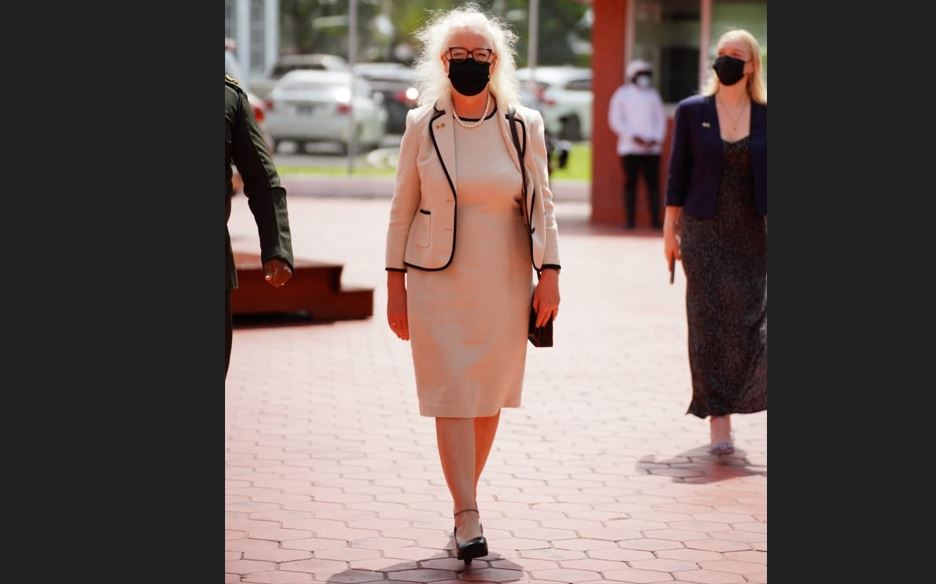By Kurt Campbell
The United Kingdom (UK), through its High Commission in Guyana, intends to engage the Irfaan Ali led government on major human rights issues in the coming months.
These include but are not limited to the abolition of the death penalty, decriminalising suicide and more protection for members of the Lesbian, Gay, Bisexual and Transgender (LGBT) community.
This was communicated to the President on Tuesday by the newly-appointed British High Commissioner to Guyana, Jane Miller.
Bearing best wishes from the Queen and the UK government, Miller said during her time in Guyana she intends to discuss with the government and civil society these human rights issues.
“I believe that through constructive dialogue that we can learn each other’s perspectives and take meaningful steps forward,” she told Dr. Ali in her accreditation speech at the Office of the President.
Although no executions have been carried out since 1997, Guyana has continued to impose death sentences. There are currently more than ten prisoners under sentence of death in the country, all of whom would be removed from death row and resentenced should a pending appeal be allowed and the death penalty is declared unconstitutional.
Guyana will become the final country in South America to abolish the death penalty and may be able to influence other countries in the Caribbean and the wider Commonwealth to do the same.
Meanwhile, according to Chapter 8:01 96 of the Laws of Guyana, “everyone who attempts to commit suicide shall be guilty of a misdemeanor and liable to imprisonment for two years”. This law was drafted over 100 years ago.
Many international bodies have urged Guyana repeatedly over the last decade to change its laws to abolish the death penalty and decriminalise suicide.
There have also been calls to decriminalise same-sex relations and provide more protection for LGBT persons.
Guyana is the only country in South America, and the only country in the Americas outside the Caribbean, where homosexual acts are still illegal. Under the laws of Guyana, engaging in anal or oral sex can carry a possible punishment of life imprisonment. The law is rarely enforced but contributes to ongoing negative perceptions of LGBTIQ people. A law banning cross-dressing was struck down by the Caribbean Court of Justice in 2018.
The Attorney General and Minister of Legal Affairs, Anil Nandlall, S.C, recently tabled legislation in Parliament to decriminalise cross-dressing.
But in addition to these three issues, High Commissioner Miller says she intends to also champion the cause of women.
She is the first woman to be appointed British High Commissioner to Guyana.
This, Miller believes represents a huge advancement for the UK government, pointing out that in 1946 the government had banned women from diplomacy and later appointed its first female ambassador in 1987.
“Gender equality is an issue close to my heart,” Miller said, noting that she looks forward to engaging and finding ways to improve the lives of women and girls.
“…and meet women leaders I’ve heard so much about,” Miller said.
The High Commissioner also offered support for Guyana’s climate change agenda.
She said the UK intends to continue its support to small states like Guyana during the COVID-19 pandemic just as it has done through the COVAX facility; the UK is one of the most generous donors to the initiative.








